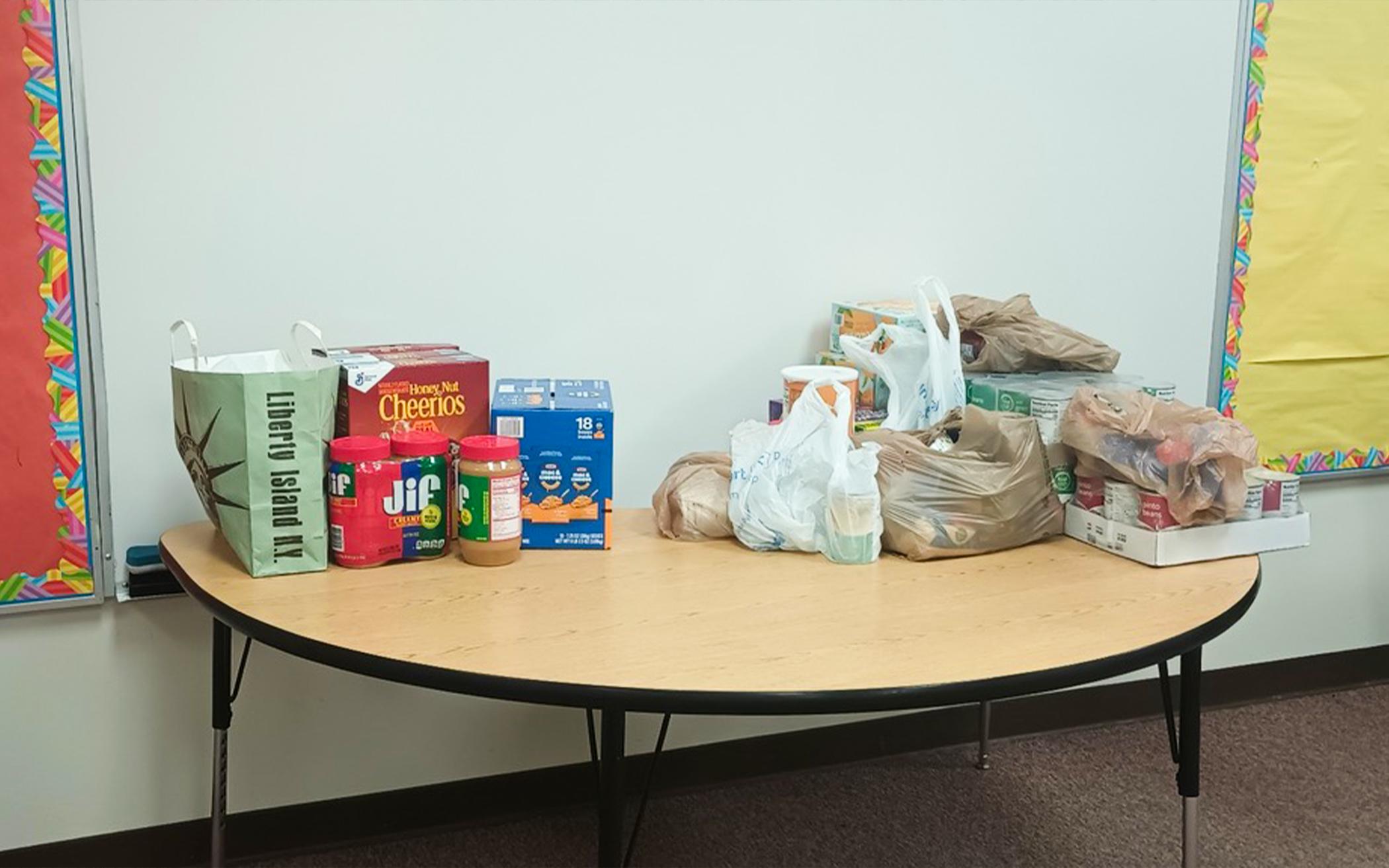Chelwood Christian Reformed Church in Albuquerque, N.M., has partnered with neighboring Onate Elementary School and the Onate Neighborhood Association, which holds its meetings at the church, to create the Coyote Kitchen Project, feeding children through their community collaboration.
Allie Weeda, the principal at Onate Elementary School, said the school has just over 300 students, and 43% of Onate school children experienced food insecurity in 2024.
In October 2023, the school hosted a small food drive and mentioned it in the neighborhood association newsletter. After reading the note, Sherry TenClay, an elder at Chelwood CRC, reached out to the school to explore a partnership.
Three food donation drop-off locations have been set up—one at the church, one at the school, and one at TenClay’s home—each marked by a large black bin with a yellow lid and a flyer outlining the project and a list of needed non-perishable items.
The congregation at Chelwood has responded with generosity, offering donations and support to help move the project forward. TenClay said, “Our philosophy as church has always been ‘we do things with people not to people or for people.’” Though still in its early stages, Weeda and TenClay are optimistic about the project’s long-term impact, including for those supporting the work—“giving everyone a sense of belonging,” TenClay said.
That includes plans to engage the wider community, with local high school students involved in logistical roles, and younger children invited to help sort donations and create signs.
Coyote Kitchen, named for the school’s coyote mascot, is in the food collection stage and will be distributing the food before the school summer break. Rather than handing out pre-packed boxes, they hope to invite parents in to shop through the donations. “We want to have dignity and autonomy in the process,” said Weeda.
To ensure the program is sustainable, Weeda said the school is intentionally “moving slowly in order to build capacity.” She said they would rather begin sharing with the 15%–20% of families who need it most and build capacity from there, rather than start large and risk not being able to meet the need.
TenClay said that while some churches can be hesitant to work with secular organizations, collaboration is possible when values align. “If you can find where your vision, mission, and values align, that’s where you can have agreement.”
About the Author
With a passion for words and creativity, Kristen Parker has been a freelance news correspondent for The Banner since 2019. She became the communications coordinator for Canada with Christian Reformed Church Communications in 2025. Kristen and her husband Chris, enjoy running and thrift shopping. They attend Stratford CRC in Stratford, Ont.









